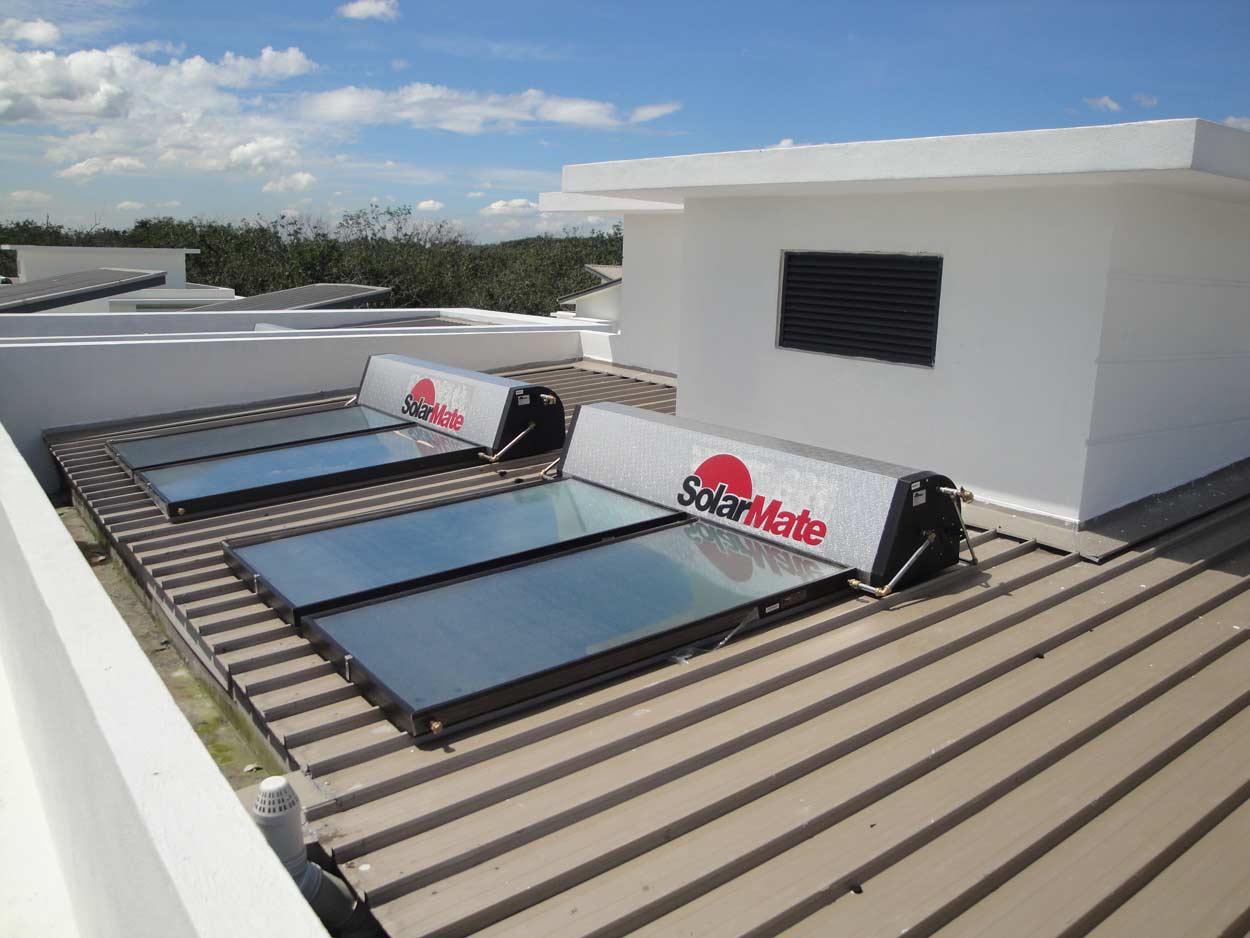
Solar water heaters are extensively being used as an alternative water heating solution across the globe. They have become more popular in recent years due to the fact that they are more economical, environmentally friendly and equally as effective as traditional water heating solutions.
What are Solar Water Heaters?
Solar water heaters are heating devices you mount on your roof. They use the solar panels on their surface to absorb the sun’s rays and use the heat energy generated from it to heat water. In doing this, they offer a threefold advantage.
1. Economical
Solar energy, the source of energy for solar water heaters, is free and inexhaustible. Although it requires an initial installation cost, you will recover the amount spent over a period of time thanks to savings on energy bills. Thereafter, you will have a lifetime of access to hot water without having to worry about rising energy costs.
2. Environmentally Friendly
Users of solar water heaters are doing their part in reducing the Earth’s carbon footprint when they switch to a solar water heater.
The energy absorbed by 1m² of a solar panel generates hot water equivalent to that received by burning 100m³ of natural gas per year. In terms of energy units, this amounts to a saving of 100 kWh energy per year.
3. Sustainable and Powerful
Just because the energy source for solar water heaters is free, it doesn’t make the device any less capable of generating hot water. On most days, solar water heaters are capable of satisfying 50-70% of your domestic hot water requirements in the kitchen and in the bathroom. In fact, using them in automatic washing devices such as a washing machine or a dishwasher considerably reduces the wash cycle. This cuts out the electricity used by such appliances and contributes further to energy and cost savings.
How Do Solar Water Heaters Work
Solar water heaters basically consist of solar collectors, water tanks, circulating pumps and a thermal regulator.
1. Solar Collectors
The solar collectors or the solar thermal panels are installed on the roof in a direction facing the sun for most hours of the day. These panels absorb the sunlight and convert it into heat energy.
2. Water Tanks
Water tanks are storage units where the heated water is stored. The water heated in the collector panels is passed to the water tank by means of a circulating pump.
3. Circulating Pumps and Thermal Regulators
The thermal regulator controls the exchange of hot water between the collector and the water tank. The exchange of water in this manner takes place only when the collector is hotter than water in the tank. Doing this ensures that the circulation pump does not suck up unnecessary electric energy and prevents the overheating of water.
4. The Back-Up Heating System
In most cases, during insufficient sunlight, the water is preheated. Then a backup system brings the water to the required temperature. The backup system thus ensures that a constant temperature is kept throughout the year.
Types of Solar Water Heaters
Depending on their specific designs, solar water heaters are classified as either active or passive. Active solar heaters are the ones that have circulating pumps and their controls. Ones without these are known as passive solar heaters.
Active solar heaters have two types of circulation systems:
Direct Circulation System
These are the preferred choices in areas that face fewer freezing temperatures. In direct systems, pumps circulate the hot water directly through the collectors to your home.
Indirect Circulation System
These are popular in climates that experience frequent freezing. Here, the pumps circulate water by circulating a non-freezing, heat-transfer fluid through the collectors. Thus, the circulating water is heated which then flows to your home.
The Bottom Line
If you’ve decided to get a solar water heater installed for your home, you need to first decide the size of the tank and the collector to meet your family’s hot water needs. Then, you need to figure out the kind of solar water system to install according to the area you live in Malaysia. Thankfully, you can always hire a team of professionals to do this for you and help you install a sustainable energy-saving water heating solution.
